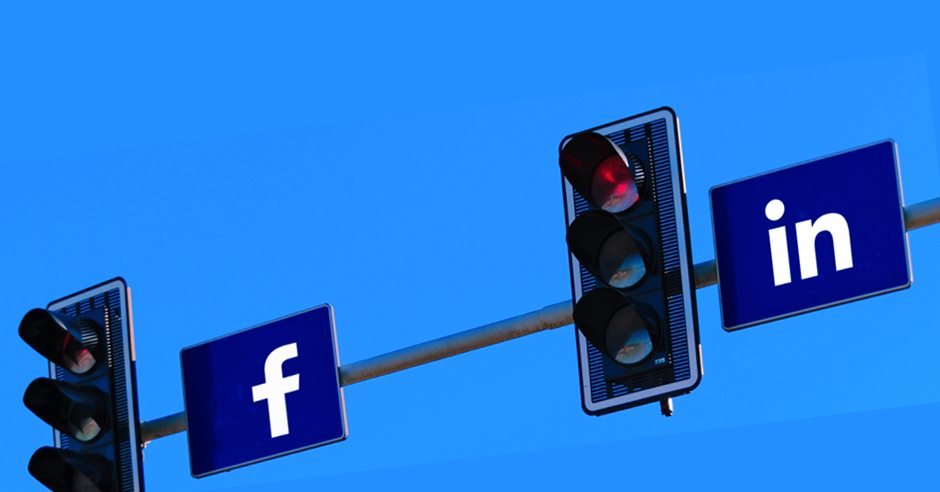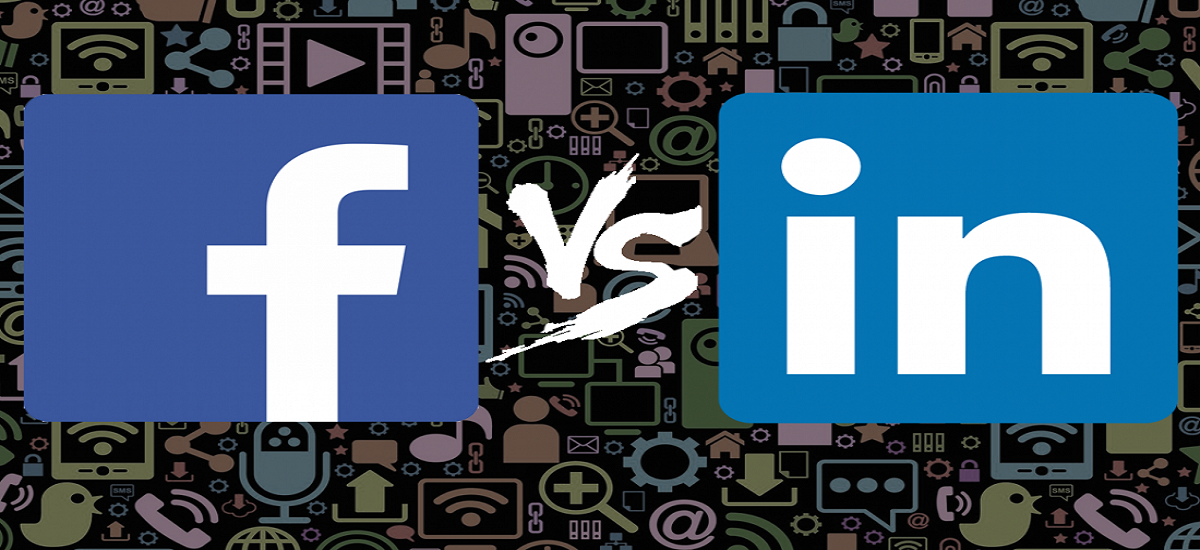Last month, Facebook rolled out a new feature called Facebook Jobs. The feature allows local businesses to post open jobs and passively look for suitable candidates. The feature also allows candidates to apply for these jobs. And so, businesses are now able to use their company Facebook pages to post job openings and communicate with applicants through Facebook Messenger.

LinkedIn Jobs, which launched in January 2005, is a more mature, robust platform and still offers more options and features than Facebook Jobs.
Although LinkedIn Jobs has more options and features compared to Facebook Jobs, Facebook Jobs may be competitive with a larger user base and candidate options.

Below, you'll find a breakdown of the current pros and cons of each social media site when it comes to its ability to help you find a job you love.
Facebook JobsPROS
1. Focus on local jobs
A job seeker has the opportunity to set a two- to 100-mile radius parameter of where they want to work. LinkedIn, on the other hand, allows the user to select options in the multiples of five.
2. Many jobs are entry-level or part-time
Because Facebook Jobs has a smaller pool of candidates, job seekers have higher chances they’ll get hired.
I scrolled through many job opportunities such as: cooks, technicians, mechanics, and servers. Just by a glance, the majority of companies seeking help are part-time and entry-level positions.
3. Facebook Jobs automatically populates an application with a jobseeker's Facebook profile.
It is a great convenience not to have to re-enter information for an application that is already listed on a profile. However, jobseekers will have to ensure that their Facebook profiles are populated in a professional manner to be used in job seeking efforts.
4. Facebook permits a text section asking, “Why do you think you’re a good candidate for [company name]?”
This allows the job seeker to show their knowledge of the company and helps the hiring committee make connections between the needs of the company the job seeker’s experience.
CONS
1. A location must be set for a search
You unable to search a position without a location, which does not do the jobseeker much good if they are wanting to relocate. Separate searches need to be done for all positions in every city. You also have to set the radius for each city.
2. Fewer jobs at the executive level
This could be considered a pro depending on what you are looking for in a job. Early adopter executives that find a relevant executive job posting on Facebook Jobs will find them among scarce competition.
Facebook Jobs gives you the option to search for different job types such as: internships, volunteer, full-time, part-time, and contract. Additionally, you are able to search by industry like: Restaurant, Medical & Health, or Professional Service.
3. There is not yet a way to search for related salaries for positions, like there is on LinkedIn Jobs.
4. Many people use Facebook for personal use.
If a jobseeker chooses to use Facebook Jobs to look for positions, then the user’s profile needs to look professional to compete in this business context. A meld of personal and business personas is a con for many jobseekers.
Pros
1. Suggested jobs are offered based on the content of your profile
LinkedIn allows you to set preferences for the types of jobs you want based on location, experience level, experience type, industry, and company size.
2.You can research salaries for the positions in the locations you are targeting
This is a great tool for job seekers to do additional research on an industry such as salaries and marketable skills.
3. With Premium Membership
Jobseekers can see how they compare to other applicants. Jobseekers can compare themselves based on skill, current title, past experience, education, and location matching.
LinkedIn has the option to quickly apply using its InEasy Apply feature
If the employer uses this option, you should apply through the company’s website using your resume or LinkedIn profile, or upload your resume to the LinkedIn Job posting.
4. Job Alerts
You have the option to be notified of newly posted roles that meet their search criteria.
Cons
1. The competition is greater on LinkedIn
Although Facebook has more users than LinkedIn, LinkedIn jobs has more activity than Facebook Jobs. The job seeker will face more competition on LinkedIn compared to Facebook.
2. A job seeker needs to go through more sponsored job postings and have to utilize search terms to find jobs that meet their requirements
It could become overwhelming with all of the jobs to sift through on LinkedIn, therefore, you have to rely on your searches to find the right positions.
3. If a jobseeker is looking for entry-level or part-time work
LinkedIn is a bit lacking for opportunities meeting these criteria. LinkedIn tends to have more representation of openings in mid-to-senior level roles in the corporate areas.
So, ultimately, which site is better to use to find your dream job: Facebook or LinkedIn? The answer is “it depends.” If you're looking for entry-level jobs in specific industries, Facebook Jobs could be the better option to start a search. However, if you're looking for more experienced positions, then LinkedIn Jobs will have many more postings. Though, keep in mind that executive jobseekers can find themselves in a much smaller pool of candidates for consideration through Facebook Jobs.

Overall, at the time, you shouldn't rule our either site entirely. It's best to use each both, and use them often, to determine which one is best for your specific needs.


Comments (0)
What others are saying about this article
No Comments Yet
Be the first to share your thoughts on this article.
Leave a Comment
Share your thoughts and join the discussion